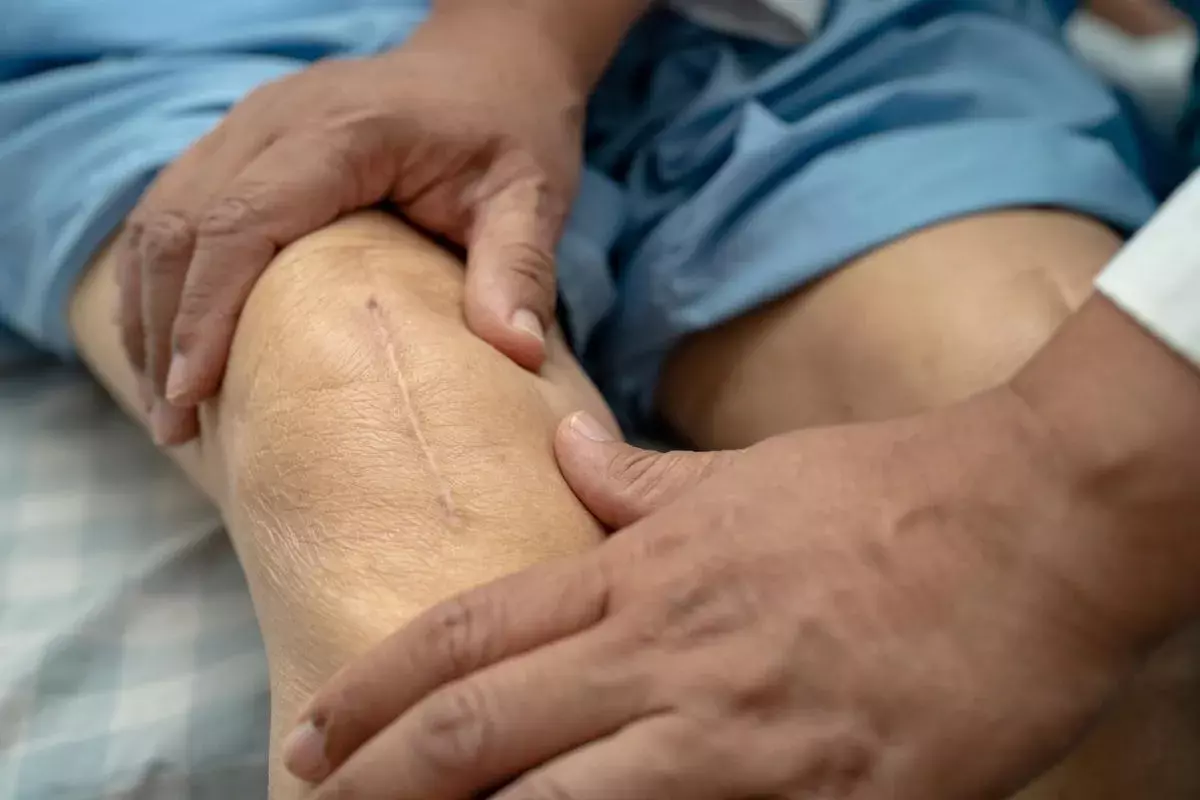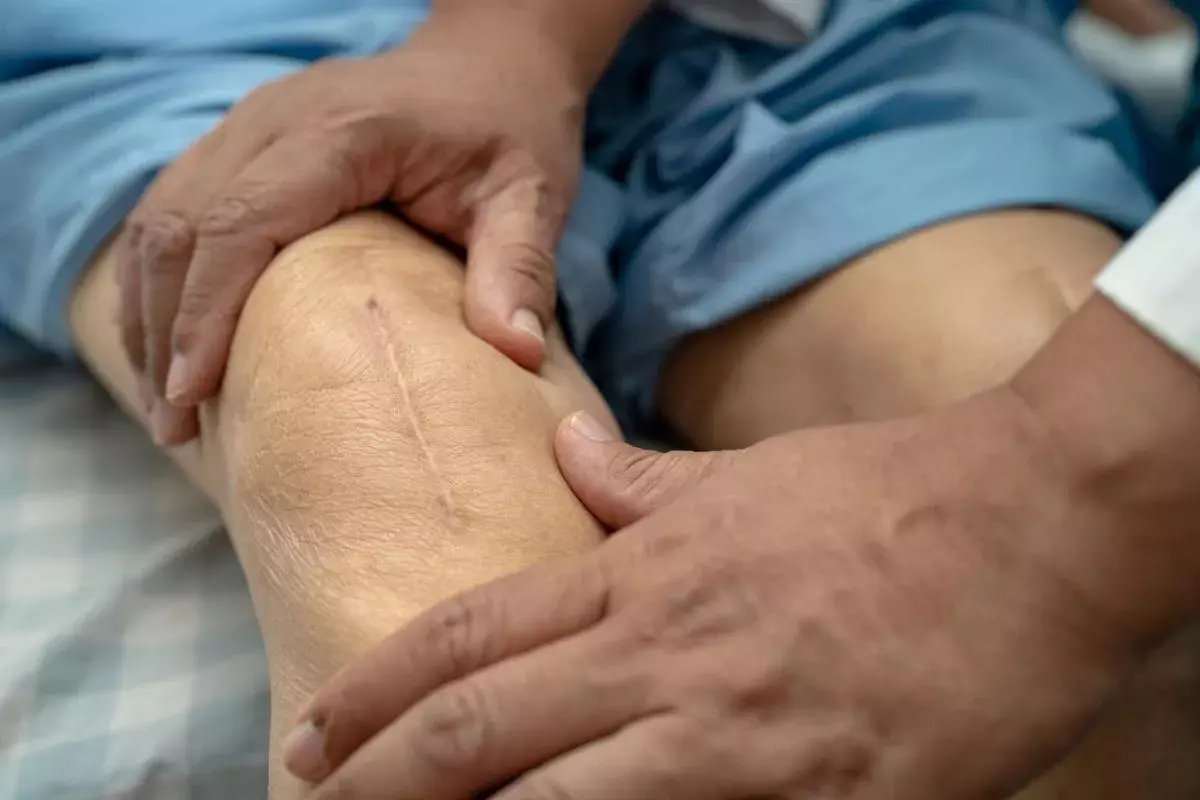
At Liv Hospital, we know that treating cancer is more than just medicine. We use complementary and alternative medicine (CAM) to help patients feel better overall. This makes their recovery journey smoother.
Many cancer patients try CAM, like acupuncture, herbal medicine, and yoga. We mix these with traditional treatments. This way, we offer full support for our patients.
We want to make our patients’ lives better. Our team works hard to give top-notch care. We also support patients from around the world.
Key Takeaways
- Integrative cancer care combines conventional treatments with CAM therapies.
- CAM therapies include acupuncture, herbal medicine, and nutritional therapy.
- A holistic approach addresses the patient’s mind, body, and spirit.
- About 40% of cancer patients use some form of CAM.
- Our team provides complete support for international patients.
Understanding the Holistic Approach to Cancer

Integrative cancer care mixes the best of traditional oncology with special therapies. It sees cancer as affecting not just the body, but also the mind and spirit.
We know a holistic approach to cancer care is key for full support. By blending traditional treatments with proven complementary therapies, we offer a more complete plan.
The Integration of Conventional and Complementary Treatments
The holistic approach combines traditional medical treatments with special therapies. This mix aims to boost the effectiveness of treatments while reducing side effects.
Traditional treatments, like surgery and chemotherapy, are based on solid evidence. Special therapies, such as acupuncture and herbal medicine, help manage symptoms and improve life quality. Together, they support the well-being of cancer patients.
| Conventional Treatments | Complementary Therapies |
|---|---|
| Surgery | Acupuncture |
| Chemotherapy | Nutritional Therapy |
| Radiation Therapy | Mind-Body Practices (Yoga, Meditation) |
Mind, Body, and Spirit: The Three Pillars of Holistic Cancer Care
The holistic approach to cancer care focuses on three main areas: mind, body, and spirit. It’s essential to address these for complete care.
Mind: Mental and emotional health is supported through meditation, yoga, and counseling. These help reduce stress and anxiety common in cancer patients.
Body: Physical health is kept up through treatments and therapies like nutrition and exercise. A healthy diet and regular activity help manage side effects and improve health.
Spirit: Spiritual support is given through mindfulness, prayer, and energy therapies. These help patients find hope and peace during their journey.
By focusing on mind, body, and spirit, the holistic approach offers a caring and complete plan. It supports the overall well-being of patients.
What is Complementary and Alternative Medicine (CAM)?

Complementary and Alternative Medicine (CAM) includes many therapies used with or instead of traditional cancer treatments. These can be things like acupuncture, herbal medicine, meditation, and yoga. They are all different.
It’s important to know the difference between complementary and alternative therapies. Complementary therapies are used with traditional treatments to help patients feel better and live better. Alternative therapies are used instead of traditional treatments, which can be risky if they don’t work well.
Defining Complementary vs. Alternative Therapies
The terms “complementary” and “alternative” are often mixed up, but they mean different things in cancer care. Complementary therapies help traditional treatments work better. Alternative therapies replace them. Knowing this helps ensure safe and effective care.
The Prevalence of CAM Use Among Cancer Patients
More and more cancer patients are using CAM. Research shows many patients use CAM to help with symptoms, feel better, and fight cancer. They want to improve their health and well-being.
To show how common CAM use is, let’s look at some numbers:
| Type of CAM | Percentage of Cancer Patients Using CAM |
|---|---|
| Herbal Supplements | 40% |
| Acupuncture | 25% |
| Meditation and Mindfulness | 60% |
| Yoga | 30% |
The Role of CAM in Modern Oncology
CAM is becoming more important in modern oncology. By adding CAM to cancer care, doctors can help patients more. CAM can help with side effects, reduce stress, and improve life quality.
As we learn more about CAM, it’s clear it can help traditional cancer care. By using CAM wisely, we can make care better and more complete. This helps patients get the best results.
Acupuncture: Ancient Wisdom for Cancer Symptom Management
Acupuncture is an ancient practice from traditional Chinese medicine. It’s now a valuable part of cancer care. By using thin needles on the body, acupuncture aims to balance and heal. We’ll look at how it helps cancer patients, its benefits, and the research backing it.
Mechanisms Behind Acupuncture for Cancer Patients
Acupuncture is thought to start the body’s healing processes. For cancer patients, it may manage symptoms by releasing endorphins, the body’s natural painkillers. It also affects various body processes.
The exact ways it works are not fully known. But research shows it can change how we feel pain, nausea, and fatigue by affecting neurotransmitters and hormones.
Benefits for Pain, Nausea, and Fatigue
Acupuncture offers many benefits for cancer patients, including:
- Pain relief: It can reduce cancer-related pain by releasing endorphins.
- Nausea reduction: It may lessen nausea and vomiting from chemotherapy.
- Fatigue management: It can improve sleep and reduce stress, helping with fatigue.
| Symptom | Acupuncture Benefit | Potential Mechanism |
|---|---|---|
| Pain | Reduced pain intensity | Endorphin release, neurotransmitter modulation |
| Nausea | Decreased nausea and vomiting | Serotonin regulation, vagal stimulation |
| Fatigue | Improved energy levels | Stress reduction, sleep quality improvement |
Research Evidence and Safety Considerations
Many studies have looked into acupuncture’s effects on cancer symptoms. While results vary, there’s evidence it helps with pain, nausea, and fatigue.
It’s important for cancer patients to talk to their healthcare providers before trying acupuncture. Safety first means choosing a licensed acupuncturist with cancer experience. Also, make sure they follow strict hygiene to avoid infections.
As we learn more about cancer care, acupuncture is a promising way to manage symptoms and improve life quality for cancer patients.
Herbal Medicine and Natural Supplements
In the world of integrative oncology, herbal medicine and natural supplements can help cancer patients. It’s key to know how they support traditional cancer treatments.
Common Herbs Used in Cancer Support
Many herbs are being studied for their benefits in cancer care. Turmeric, with curcumin, is known for its anti-inflammatory effects. Ginger helps with nausea from chemotherapy. Milk thistle and green tea are also used, but their safety and effectiveness vary.
Potential Interactions with Conventional Treatments
Herbal supplements can be beneficial but may also interact with traditional cancer treatments. For example, St. John’s Wort can change how some chemotherapy drugs work. High doses of antioxidant supplements might also affect the body’s response to cancer treatments, but more research is needed.
Guidance for Safe Use During Cancer Treatment
To safely use herbal medicine and natural supplements during cancer treatment, patients should:
- Consult with their healthcare team before starting any new supplement.
- Disclose all supplements being taken to their oncologist.
- Be aware of possible interactions with their cancer treatment.
- Watch how their body reacts to any new supplement.
By working with their healthcare providers, cancer patients can safely add herbal medicine and natural supplements to their treatment plan.
Nutritional Therapy and Anti-Cancer Diets
Nutritional therapy is a key part of treating cancer. It focuses on how diet helps manage cancer. Diets that fight cancer are being studied to see if they help with treatment.
Plant-Based and Anti-Inflammatory Approaches
Plant-based diets are good for health. They include foods like fruits, vegetables, and whole grains. These diets help fight inflammation, which is bad for cancer.
Key components of anti-inflammatory diets include:
- High intake of fruits and vegetables
- Consumption of omega-3 fatty acids
- Inclusion of antioxidant-rich foods
- Avoidance of processed and high-sugar foods
Studies show that anti-inflammatory diets can help with cancer symptoms. For example, a study found that eating more fruits, vegetables, and whole grains can improve survival rates.
“The evidence is clear: a diet rich in whole, plant-based foods can play a critical role in cancer prevention and treatment. As healthcare providers, it’s essential we guide our patients towards making informed dietary choices.” -Oncologist
Specific Diets: Mediterranean, Ketogenic, and Macrobiotic
Some diets are being looked at for their anti-cancer benefits. The Mediterranean diet, with its olive oil and whole grains, has been shown to reduce cancer risk.
| Diet | Key Features | Potential Anti-Cancer Effects |
|---|---|---|
| Mediterranean | High in olive oil, fruits, vegetables, whole grains | Reduced inflammation, improved cardiovascular health |
| Ketogenic | High-fat, low-carbohydrate, moderate protein | Potential to starve cancer cells, reduce tumor growth |
| Macrobiotic | Emphasis on whole grains, local vegetables, beans | Balances body energy, supports immune function |
The ketogenic diet is being studied for its effects on cancer. It’s high in fat and low in carbs. Some research suggests it could help fight cancer.
Nutritional Support During Treatment and Recovery
Nutritional support is key during cancer treatment. Patients may lose their appetite or have trouble digesting food. It’s important to eat enough protein and calories to help the body heal.
Strategies for nutritional support include:
- Eating small, frequent meals
- Choosing nutrient-dense foods
- Staying hydrated
- Considering nutritional supplements if necessary
Adding nutritional therapy to cancer care can help patients. It can improve treatment results and quality of life. As research grows, using good nutrition in cancer care is becoming more important.
Mind-Body Practices: Yoga, Tai Chi, and Qigong
Yoga, tai chi, and qigong are being used in cancer care. They come from ancient traditions and help patients in many ways. These practices support patients through treatment.
Physical Benefits for Cancer Patients
Mind-body practices offer many physical benefits. Yoga improves flexibility, balance, and strength. Tai chi and qigong help with slow movements that boost coordination and cut down fatigue.
These practices also help manage side effects. Yoga, for example, can lessen pain and improve sleep. By adding these practices to their care, patients might need less pain medicine and live better.
Emotional and Psychological Support
Mind-body practices offer emotional and psychological support too. They reduce stress and anxiety by teaching relaxation and mindfulness. Meditative elements help patients stay in the present, lessening worries about the future or past.
Yoga, tai chi, and qigong also create a sense of community. Group classes offer a place for patients to share and feel supported by others facing similar challenges.
Adapting Practices During Different Treatment Phases
It’s key to adjust mind-body practices based on the patient’s treatment phase and health. During active treatment, gentle practices are best to handle side effects like fatigue and pain. In the recovery phase, more vigorous practices can help regain strength and flexibility.
Patients should learn from qualified instructors who know how to teach cancer survivors. These experts can customize the practices to fit each patient’s needs and abilities, ensuring a safe and helpful experience.
Meditation and Mindfulness for Cancer Resilience
Meditation and mindfulness can greatly help cancer patients. They help manage stress, improve mood, and give a sense of control over health. These practices are powerful tools during tough times.
Reducing Stress and Boosting Immune Function
Meditation and mindfulness can lower stress in cancer patients. This is key because too much stress can weaken the immune system. By reducing stress, these practices can help the body fight cancer better.
Studies show that mindfulness can lower stress hormones like cortisol. This helps the immune system stay balanced. Patients often feel better, sleep more, and handle treatment better.
Coping with Uncertainty and Fear
Cancer brings uncertainty and fear. Meditation and mindfulness offer calm and grounding. They help patients deal with these tough emotions by focusing on the present.
Guided imagery and loving-kindness meditation are great for this. Guided imagery boosts hope and resilience. Loving-kindness meditation promotes kindness and healing.
Techniques Specific to Cancer Patients
Some meditation and mindfulness techniques are better for cancer patients. These include:
- Mindfulness-Based Stress Reduction (MBSR): A program with meditation, yoga, and stress reduction education.
- Guided Imagery: Uses visualization for relaxation and positive thoughts.
- Loving-Kindness Meditation: Focuses on kindness and compassion.
- Body Scan Meditation: Helps relax and become aware of the body.
For those with cancer-related fatigue, gentle mindfulness is helpful. Even a little mindfulness each day can improve how you feel.
In summary, meditation and mindfulness are key for cancer resilience. They reduce stress, improve mood, and give control. We suggest these practices for cancer patients to include in their care plan.
Energy Therapies: Reiki, Healing Touch, and Therapeutic Touch
Cancer patients are exploring energy therapies like Reiki, Healing Touch, and Therapeutic Touch. These methods aim to balance and relax the body. They are based on the idea of a universal life force or energy.
Understanding Energy-Based Approaches
Energy therapies believe the body has an energy field that can heal and relax. Reiki, from Japan, uses hand energy transfer for healing. Healing Touch and Therapeutic Touch use touch to balance energy.
Trained practitioners administer these therapies. They aim to balance and harmonize the body’s energy. This is helpful for cancer patients under stress.
Patient Experiences and Reported Benefits
Many cancer patients find energy therapies beneficial. They report less anxiety, better sleep, and calmness. These therapies are used alongside traditional treatments to improve well-being.
- Reduced stress and anxiety
- Improved sleep quality
- Enhanced sense of well-being
- Complementary to conventional cancer treatments
Patients often feel more relaxed and centered after sessions. This is very helpful during tough cancer treatment times.
Current Research and Hospital Integration
More research is needed to fully understand energy therapies’ effects on cancer. But, studies suggest they can help alongside traditional care. Some hospitals and cancer centers are starting to offer these therapies.
Research is looking into how energy therapies manage symptoms like pain, nausea, and fatigue. As more evidence comes in, we’ll see these therapies used more in cancer care.
Implementing a Holistic Approach to Cancer Care
A holistic approach to cancer care treats the whole person – body, mind, and spirit. It knows that cancer impacts not just the body but also emotions and spirit. This method supports patients in all aspects of their health.
Creating a Personalized Integrative Care Plan
Creating a care plan that fits each patient is key. We assess each person’s needs and preferences. This plan changes as the patient’s situation evolves.
Key components of a personalized integrative care plan include:
- Assessment of the patient’s overall health and cancer status
- Identification of symptoms and side effects to be addressed
- Selection of appropriate conventional treatments
- Incorporation of evidence-based complementary therapies
- Regular monitoring and adjustments to the plan as needed
Communicating with Your Healthcare Team
Talking openly with your healthcare team is vital. We encourage patients to share their use of complementary therapies. This ensures all care is coordinated and safe.
Tips for effective communication include:
- Keeping a record of all treatments and therapies used
- Discussing any complementary therapies with your oncologist
- Asking questions about possible interactions between treatments
- Informing your healthcare team about any changes in your condition or symptoms
Finding Qualified CAM Practitioners
Finding qualified CAM practitioners is important. We suggest asking your healthcare team for recommendations. Always check the credentials of any CAM practitioner you consider.
Questions to ask CAM practitioners include:
- What experience do you have working with cancer patients?
- What training or certifications do you have in your therapy?
- How will you communicate with my oncologist or other healthcare providers?
Financial Considerations and Insurance Coverage
Costs can be a big issue in holistic cancer care. We help patients understand insurance coverage for treatments and therapies. Some therapies may not be covered, so we look for affordable options.
Strategies for managing costs include:
- Checking insurance coverage for CAM therapies
- Exploring community resources or support groups that offer free or low-cost services
- Discussing payment plans or financial assistance programs with CAM practitioners
Conclusion: Empowerment Through Integrative Cancer Care
A holistic approach to cancer care includes many therapies that help patients. These therapies work alongside traditional treatments. They improve symptoms, well-being, and give patients more control over their care.
Integrative cancer care lets patients be part of their recovery. It builds a strong bond between patients and their doctors. This method helps with both the physical and emotional sides of cancer. For more on cancer treatments, check out Liv Hospital’s resource on cancer treatment.
By choosing a holistic approach, patients find empowerment and hope. We suggest trying the therapies mentioned and working with your healthcare team. Together, you can make a care plan that fits your needs.
What is Complementary and Alternative Medicine (CAM) in cancer care?
Complementary and Alternative Medicine (CAM) includes various medical systems and practices not part of traditional medicine. In cancer care, CAM therapies are used alongside conventional treatments. They help support patients’ overall well-being.
What are the benefits of a holistic approach to cancer care?
A holistic approach to cancer care combines conventional treatments with CAM therapies. It addresses the patient’s physical, emotional, and spiritual needs. This approach can help manage symptoms, reduce stress, and improve quality of life.
What are some examples of CAM therapies used in cancer care?
CAM therapies in cancer care include acupuncture, herbal medicine, and nutritional therapy. Mind-body practices like yoga and meditation are also used. Energy therapies like Reiki and Healing Touch are part of it too.
Is acupuncture safe for cancer patients?
Acupuncture is safe for cancer patients when done by a licensed practitioner. It uses sterile needles. It helps manage symptoms like pain, nausea, and fatigue.
Can herbal supplements interact with conventional cancer treatments?
Yes, herbal supplements can interact with conventional cancer treatments. This can reduce treatment effectiveness or increase side effects. Always consult a healthcare provider before using herbal supplements during cancer treatment.
What is the role of nutritional therapy in cancer care?
Nutritional therapy is key in cancer care. It supports patients’ nutritional needs during treatment and recovery. Diets like plant-based and anti-inflammatory may help manage symptoms and improve health.
How can mind-body practices like yoga and meditation benefit cancer patients?
Mind-body practices like yoga and meditation help cancer patients manage stress. They reduce anxiety and depression, improving overall well-being. These practices can be adapted for different treatment phases and individual needs.
What are energy therapies, and how are they used in cancer care?
Energy therapies, such as Reiki and Healing Touch, involve energy transfer from the practitioner’s hands to the patient’s body. They promote relaxation, reduce stress, and support overall well-being in cancer patients.
How can patients create a personalized integrative care plan?
Patients can create a personalized integrative care plan by consulting with their healthcare team. They should identify their individual needs and goals. Then, they can incorporate CAM therapies that support their overall well-being.
Are CAM therapies covered by insurance?
Insurance coverage for CAM therapies varies. It depends on the therapy, insurance provider, and policy. Patients should check with their insurance provider to determine coverage and any out-of-pocket costs.










